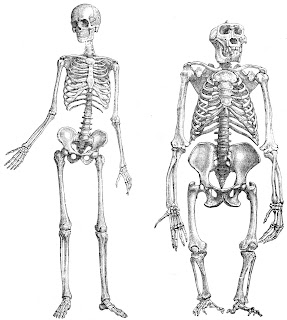Although my group have not done much.....
We will still have to try our best
TO TELL EVERYONE THAT
OUR
BELOVED
ORANG
UTAN
IS
CLOSE
TO
EXTINCTION
I also wish to uphold my thanks to my groups members Mirul, Kai Qin, Ahswayni and also to my friends Putra, Ammar, Bryan Chin, Azmezan Afizi, Punitha for giving support.
Monday, August 31, 2009
End......
Posted by 3 Setia at 7:18 AM 0 comments
What Can We Do?????????????????
As human beings, we can help by:
i) Visiting the nearby Orang Utan reserve
ii) Adopt an Orang Utan!
iii) Donation
iv) Spread The Word about Orang Utan extinction
Posted by 3 Setia at 7:08 AM 0 comments
CURRENT PROBLEM..............................
The Sumatran species is critically endangered and the Bornean species of orangutans is endangered according to the IUCN Red List of mammals, The most recent estimate for the Sumatran Orangutan is around 7,300 individuals in the wild while the Bornean Orangutan population is estimated at between 45,000 and 69,000. These estimates were obtained between 2000 and 2003.
Orangutan habitat destruction due to logging, mining and forest fires which has been increasing rapidly in the last decade.
A major factor in that period of time has been the conversion of vast areas of tropical forest to oil palm plantations in response to international demand (the palm oil is used for cooking, cosmetics, mechanics, and more recently as source of biodiesel).
There is also a major problem with hunting and illegal pet trade. In early 2004, about 100 individuals of Bornean origin were confiscated in Thailand and were returned to Kalimantan in 2006.
Posted by 3 Setia at 6:58 AM 0 comments
Diet
Fruit makes up 65–90 percent of the orangutan diet. Fruits with sugary or fatty pulp are favored. Ficus [fig tree] fruits are commonly eaten, because they are easy to harvest and digest. Lowland Dipterocarp [type of tropic] forests are preferred by orangutans because of their plentiful fruit. Bornean orangutans consume at least 317 different food items that include: young leaves, shoots, seeds, bark, insects, honey, and bird eggs.
Posted by 3 Setia at 6:28 AM 0 comments
Appearance
An orangutan's standing height averages from 4 to 5 feet (1.2 to 1.5m) and weighs between 73 to 180 lbs (33 to 82 kg). Males can weigh up to 250 lbs (113 kg) or more. Orangutan hands are similar to humans hands; they have four long fingers and an opposable thumb. Their feet have four long toes and an opposable big toe. Orangutans can grasp things with both their hands and their feet.
Orangutans have a large, bulky body, a thick neck, very long, strong arms, short, bowed legs, and no tail. They are mostly covered with long reddish-brown hair, although this differs between the species.
The orangutan has a large head with a prominent mouth area. Adult males have large cheek flaps (which get larger as the ape ages) that show their dominance to other males and their readiness to mate to other females. The age of maturity for females is approximately 12 years. Orangutans may live for about 50 years in the wild. However, thousands of orangutans don't reach adulthood due to HUMAN DISRUPTION. Orangutans are killed for food while others are killed because of disruption in people's property. Mother orangutans are killed so their infants can be sold as pets. Many of the infants die without the help of their mother.
Mothers stay with their babies for six or seven years. There is significant sexual dimorphism, [systematic difference in form between individuals of different sex in the same species] females can grow to around 4 ft 2 in or 127 centimeters and weigh around 100 lbs or 45 kg, while flanged adult males can reach 5 ft 9 in or 175 centimeters in height and weigh over 260 lbs or 118 kg.The arms of orangutans are twice as long as their legs. Their fingers and toes are curved, allowing them to better grip onto branches. Orangutans have less restriction in the movements of their legs than humans. Unlike gorillas and chimpanzees, orangutans are not true knuckle-walkers, and are instead fist-walkers.
Posted by 3 Setia at 1:32 AM 0 comments
Sunday, August 30, 2009
Origin of the Name
The name orangutan (also written orang-utan, orang utan and orangutang) is derived from the Indonesian and Malay words orang meaning "person" and hutan meaning "forest", thus "person of the forest".
Posted by 3 Setia at 7:58 AM 0 comments
